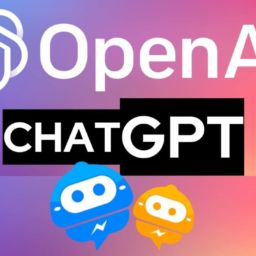
💡 Quick Takeaways: Your AI-Powered Life and What It Means for Your Business
AI is No Longer “Future Tech”: It’s deeply integrated into the tools you use daily, from facial recognition security to smart suggestions in your inbox.
-
The Content & Search Revolution: Generative AI tools like ChatGPT and Google’s SGE have permanently altered content creation, SEO strategy, and the entire search engine landscape.
-
Personalization is Mandatory: AI-driven social feeds, e-commerce recommendations, and streaming service suggestions have set an impossibly high bar for customer expectations. Your website must follow suit.
-
The UX/UI Imperative: AI features (like smart routing in navigation or proactive fraud detection in banking) are now key parts of the user experience. A modern digital presence must integrate or respond to these AI-powered expectations.
-
New Frontiers: AI in Healthcare, Finance, and Education demonstrates the critical need for robust, bias-free, and compliant systems—a benchmark your own business systems must meet.
-
Actionable Insight: Ignoring the role of AI in your digital strategy is no longer an option. It’s the difference between a website that converts and one that merely exists.
The AI Is Already Inside: 25+ Ways Artificial Intelligence Has Quietly Rewritten Your Daily Life
It’s easy to talk about the “AI revolution” as some big, scary, future thing. We saw the headlines about ChatGPT, DALL-E, and self-driving cars, and some would think, “Okay, that’s coming soon.” But here’s the truth bomb your friendly neighborhood web guy needs you to absorb: AI isn’t coming. It’s here. It’s been here.
In fact, AI is less like a seismic shift and more like the silent, hyper-efficient operating system running every facet of your digital (and increasingly, physical) life. It’s influencing your decisions, curating your reality, and setting a new, impossibly high standard for the websites and content you produce for your own business.
At OnewebX, we don’t just preach about digital strategy; we live it. And right now, strategy means understanding that the expectations of your customers have been fundamentally reset by their constant interaction with advanced AI.
Let’s dive into the fascinating, sometimes spooky, ways AI has become the air we breathe, and what that means for your next content strategy meeting.
🛡️ Security, Access, and Authentication: The AI Gatekeepers
Remember fumbling with a 4-digit code? That’s ancient history. AI has made security both stronger and more invisible.
-
Face Recognition: Beyond the Passcode. Your smartphone doesn’t just check for a match when you unlock it; it uses sophisticated machine learning algorithms to map and analyze thousands of invisible data points on your face, often using 3D depth perception (like Apple’s Face ID). The Lesson for UX: Users expect security to be instant and seamless. If your login process feels clunky, it’s a conversion bottleneck.
-
Safety and Response: The Life-Saving AI. Modern wearable tech (like smartwatches) and smartphones now feature AI-powered Fall Detection and Car Crash Detection. They continuously analyze accelerometer and gyroscope data to distinguish a hard fall or a severe collision from a simple stumble, automatically alerting emergency services. The Takeaway: AI is baked into the customer journey for peace of mind.
🚗 Navigating the World: On the Road and Beyond
If you’ve driven a car or booked a flight recently, you’ve handed the reins over to AI.
-
Smart Cars: Autonomous Evolution. Tesla, along with every major auto manufacturer, uses AI’s machine learning capabilities to power semi-autonomous driving. These vehicles learn collectively – the data gathered by one car on a tricky intersection informs the entire fleet. The Lesson: Data isn’t just stored; it’s shared and applied for continuous product improvement.
-
Navigation and Travel Optimization. When Google Maps reroutes you around sudden traffic, or Uber instantly calculates dynamic pricing based on demand, that’s an AI optimization engine at work. The Takeaway: Customers value real-time, personalized efficiency. Your business operations, from inventory to customer service, should strive for this AI-level responsiveness.
🗣️ Digital Dialogue: Your Personal AI Assistants
From dictating an email to setting the living room temperature, AI is your ever-present helper.
-
Digital Assistants: Your Voice-Activated World. Alexa, Siri, and Google Assistant are powered by natural language processing (NLP) and machine learning that continually improve their understanding of accents, context, and intent. The Marketing Insight: Voice search optimization is a key part of modern SEO. People don’t ask a search engine the same way they talk to an assistant. Your content needs to answer full, conversational questions.
-
Everyday Communication Enhancers. Features like Gmail’s Smart Compose (suggesting full sentences) and Grammar Check aren’t just fancy tools; they’re predictive AI models helping you write faster and cleaner. The Content Creator’s Edge: Use this AI to speed up drafting, but never forget the human touch. AI makes you fast; your personality makes you compelling.
-
Speech Processing & Transcription. Tools like Google Recorder and Live Transcribe leverage AI to instantly turn spoken words into searchable text, and can even caption video and audio in real-time for accessibility. The Business Win: Eliminating manual transcription saves you money and time.
📱 The Curation Engine: Content, Shopping, and Attention
This is the AI that marketers must understand most intimately – the algorithms that control what people see, when they see it, and what they buy.
-
Social Media & Streaming: The Endless Feed. Why is Netflix’s homepage different from your neighbor’s? Why are you seeing a very specific viral dance on TikTok? AI algorithms analyze your past behaviors, watch times, shares, and even the time of day you scroll to curate a feed designed to be maximally addictive. Spotify’s “Discover Weekly” is a masterclass in AI-powered personalization. The Strategy Shift: You can no longer rely on generic content. Your digital marketing must be hyper-targeted, addressing the unique interests that AI has identified for your ideal customer.
-
E-commerce Personalization. Amazon’s “Customers who bought this also bought…” is the OG AI recommendation engine. It anticipates your needs better than you do, reducing friction and maximizing cart value. The UX/UI Best Practice: Your website’s product or content recommendations must be just as smart. Ditch static “Featured Products” for genuinely relevant, AI-backed suggestions.
-
AI Image Generation. Tools like Midjourney and DALL-E have put stunning creative production into the hands of anyone with a keyboard. The Creative Mandate: AI handles the rendering; humans must provide the compelling vision, emotional context, and brand strategy.
🔎 The Search & Content Earthquake: Generative AI
The biggest change in the last few years isn’t just a new tool; it’s a fundamental shift in how information is found and created.
-
The Generative AI Tsunami (ChatGPT, Midjourney, etc.): AI-powered chatbots and image generators have democratized creation. They can generate code, write blog posts, and create stunning visual art in seconds. The OnewebX Stance: We use these tools – not to replace human creativity, but to amplify it. The prompt engineer (the human) is now more valuable than the content generator (the machine).
-
Google’s SGE (Search Generative Experience): Google is integrating Large Language Models (LLMs) right into the search results page. Instead of just a list of links, SGE provides an AI-generated summary or direct answer. The SEO Revolution: This changes the game completely. SEO is moving from simply ranking high to providing the most authoritative, valuable, and comprehensive information that the AI trusts enough to cite. Your content must be 10x better than the competition.
🏦 The Financial Guardrails: AI in Banking and Support
Even your money is being managed by AI, prioritizing both convenience and compliance.
-
Banking: Fraud and Compliance. AI-driven solutions are the muscle behind 24/7 financial chatbots, but more importantly, they are essential for fraud detection, Anti-Money Laundering (AML) checks, and Know Your Customer (KYC) compliance. They spot anomalous transactions in a split second. The Trust Factor: When a system manages complexity effortlessly, it builds customer confidence. Your business must use technology to handle security and privacy (like GDPR/CCPA) with the same seamless authority.
-
Next-Level Customer Service (Chatbots, Duplex): Modern AI chatbots handle customer interactions flawlessly, and services like Google’s Hold For Me literally save you from elevator music. The Conversion Point: Frictionless customer service – often AI-assisted – is a key competitive advantage. If your bot can’t solve a simple problem instantly, it’s hurting your brand.
🏥 New Frontier: The Silent Revolution in Healthcare
If you think AI is just about your marketing funnel, look at the high-stakes world of medicine, where AI is saving lives and transforming care.
-
Diagnostic Imaging Analysis. AI algorithms can analyze X-rays, MRIs, and CT scans faster and often more accurately than the human eye, flagging subtle signs of cancer, fractures, or disease that might otherwise be missed. This boosts accuracy and saves precious time.
-
Drug Discovery and Clinical Trials. Machine learning models screen millions of molecular compounds in days, predicting which ones are most likely to become effective new drugs, drastically cutting the time and cost of pharmaceutical R&D.
-
Predictive Medicine and Personalization. AI analyzes a patient’s electronic health records, genomic data, and lifestyle information to predict their risk for certain diseases before symptoms appear and recommends truly personalized treatment plans, dosages, and interventions.
📈 New Frontier: AI in High-Stakes Finance and Trading
AI has moved beyond just basic fraud detection to become a core engine for financial strategy and stability.
-
Algorithmic and High-Frequency Trading. Automated systems use AI to analyze market data, news sentiment, and economic indicators in milliseconds to execute trades at speeds impossible for a human, dominating global stock exchanges.
-
Customized Credit Underwriting. Modern lending platforms use AI to create a “digital twin” of a borrower, analyzing complex financial data (like GST or ITR records) to provide highly nuanced risk assessment, leading to faster, more personalized loan decisions that traditional, rigid rules-based systems would simply reject.
-
Agentic AI for Financial Workflow. Next-generation AI agents don’t just recommend actions; they can autonomously draft the first version of complex financial documents, such as Credit Approval Memos (CAMs), freeing human underwriters to focus on the final judgment and client relationship.
🎓 New Frontier: Personalized Learning and Climate Modeling
AI’s reach extends to the fundamental systems that educate the next generation and manage the planet’s most critical data.
-
Adaptive Learning Systems in Education. AI-powered tutoring platforms (e.g., Duolingo, Khan Academy features) dynamically adjust the content, pace, and difficulty of lessons in real-time based on the student’s performance, strengths, and weaknesses, achieving true one-on-one personalized education at scale.
-
Weather Forecasting and Climate Modeling. AI processes vast datasets from global satellites, ground sensors, and historical records to predict everything from daily weather patterns to long-term climate change impacts, helping governments, businesses, and emergency services prepare for extreme events like hurricanes and wildfires.
-
Environmental Monitoring. AI uses computer vision to analyze satellite and drone imagery to automatically track deforestation, monitor ocean health, detect illegal mining, and map critical biodiversity zones, providing real-time oversight for global conservation efforts.
🔥 The OnewebX Challenge: Is Your Website Running on Yesterday’s Operating System?
The technology stack around us is evolving exponentially. If you are still relying on a website or a content strategy designed before the AI revolution – a strategy based on a world where customers had lower expectations for personalization, speed, and seamlessness – you are falling behind.
Your customers live in an AI-curated world. They expect instant answers, personalized recommendations, and a user experience that adapts to them. Your digital presence must meet that challenge.
Are you ready to move from simply existing online to actually converting with a modern, AI-aware digital strategy?
Let us help you make the leap.






